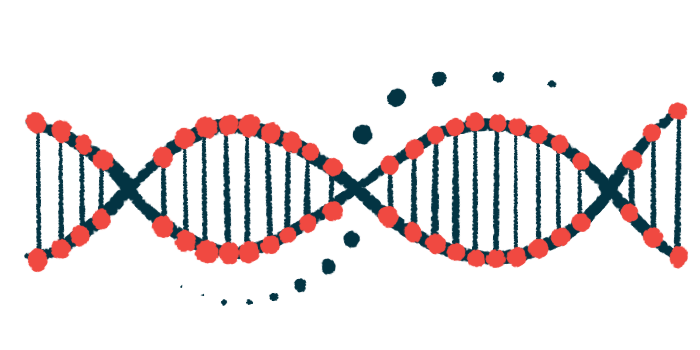Higher risk of ALS found with rare gene variants tied to Parkinson’s
Certain mutations may raise risk more than 3 times, lead to shorter survival

Certain rare genetic variants associated with Parkinson’s disease and other neurodegenerative disorders may increase, by up to nearly four times, the risk of developing amyotrophic lateral sclerosis (ALS), a study found.
These variations also may lead to faster ALS progression and shorter survival, so patients who carry the mutations should be closely monitored by their doctors, according to the researchers.
The study’s results suggest that common mechanisms contribute to distinct neurodegenerative conditions.
“Our findings broaden the understanding of the genetic overlap between ALS and these other disorders by focusing on rare variants instead of common genetic factors,” Maurizio Grassano, MD, PhD, a postdoctoral researcher and neurologist at the ALS Center of the University of Turin in Italy, who led the study, said in a press release. “Although identifying these variants may not change treatment, the knowledge can help physicians personalize management of those patients.”
Grassano presented the findings at this year’s annual meeting of the American Neurological Association (ANA), held Sept. 14-17, in Orlando, Florida. His poster was titled “Crossing Paths: The Influence of Neurodegeneration-Related Variants on ALS Risk and Phenotype.”
Investigating rare genetic variants that may raise the risk of ALS
The exact causes of ALS are unclear, but there’s strong evidence that a person’s genetic makeup has an impact on the risk of developing the disease. While mutations are mostly found in people with familial ALS, about 10% of those with sporadic ALS also carry a genetic variant linked to the disease. However, other variants may exist.
“In this era of extensive genetic testing, it has become increasingly likely that variants in genes will be detected that are not directly linked to the primary diagnosis,” Grassano said. “These insights will help inform future research on diagnosing and treating this devastating disease.”
The new study looked at genetic data from 791 people with a diagnosis of sporadic ALS in the Piedmont and Aosta Valley Registry for ALS (PARALS), a database that covers two regions in northwestern Italy, and 757 healthy people without the disease, who served as controls. Only patients with no known ALS-causing mutations were included.
Grassano and other researchers at the University of Turin, as well as one from the U.S., focused on a panel of 153 genes linked to other neurodegenerative disorders. Their goal was to identify rare genetic variants that could influence the risk of developing ALS or impact how the disease manifests and progresses over time.
In this era of extensive genetic testing, it has become increasingly likely that variants in genes will be detected that are not directly linked to the primary diagnosis. … These insights will help inform future research on diagnosing and treating [ALS].
Data showed that 145 (18.3%) of the ALS patients carried at least one high-impact genetic variant and 90 (11.4%) had a novel variant that hadn’t been previously identified. In the control group, 107 (14.4%) carried a genetic variant, and 51 (6.9%) had a novel variant.
This meant that carrying a genetic variant associated with another neurodegenerative condition is linked to a 1.28 times higher risk of developing ALS. If that variant was novel, the risk was raised by 1.75 times, a statistically significant increase.
Importantly, the strongest link was observed for genetic variants linked to Parkinson’s, which increased the risk of developing ALS by 3.6 times. Among people with ALS, those with flail arm, which is characterized by weakness in the upper limbs, were more likely to carry these rare genetic variants.
Moreover, carrying a novel genetic variant was linked to a 24% shorter survival time in people with ALS, suggesting they may experience faster disease progression.
“This study underscores the [multifaceted] effects of rare variants in neurodegenerative diseases, expanding our understanding of ALS genetics and offering potential avenues for improved diagnostic and therapeutic approaches,” the researchers wrote in their abstract.







